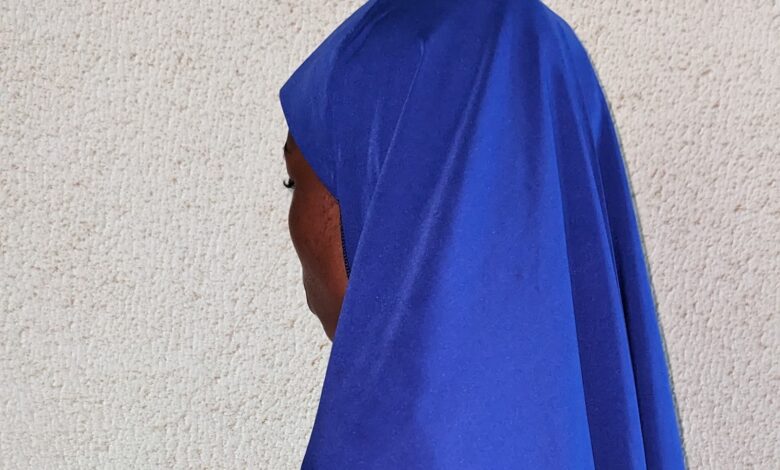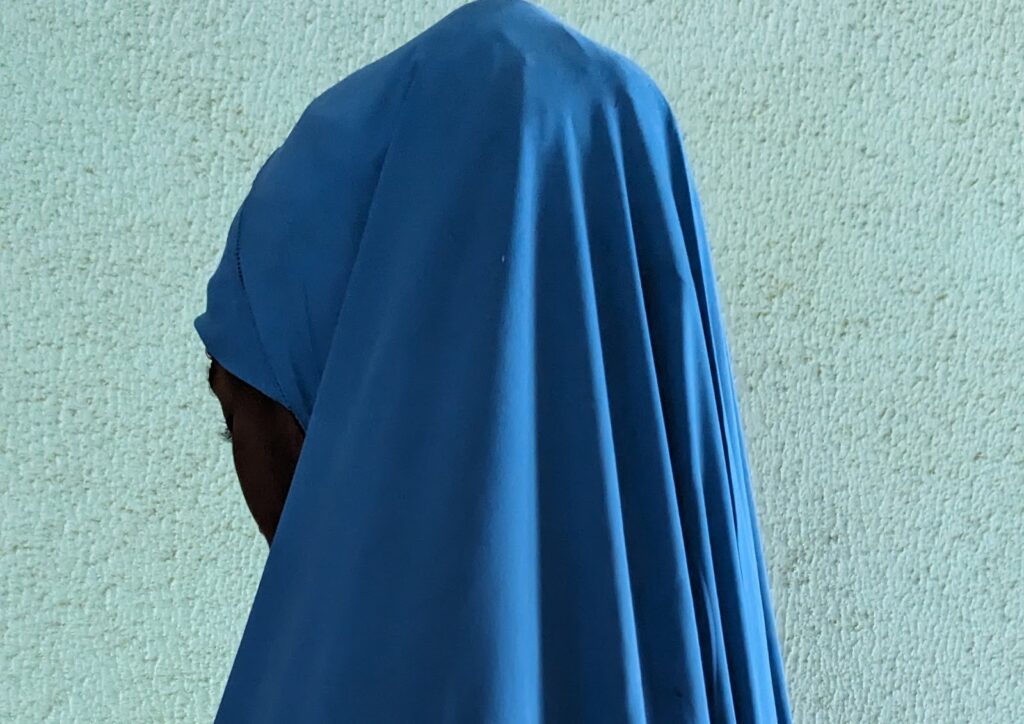Cost Of Living Crisis: Nigerian Schoolgirls Suffer Setbacks
One of the biggest impacts of the fuel subsidy removal in Nigeria is its effect on transportation. For already struggling school girls like Ruqayyah and Aisha, this may take away their biggest hope for a brighter future- the right to education.

For Ruqayyah Bashir*, 18, the burden of feeding and schooling lies on her mother. When economic hardship trailed the fuel subsidy removal in Nigeria, things became unbearable for the family.
Ruqayyah, a senior secondary school student at the Women Training College in Kaduna, North West Nigeria, said her pensioner father leaves her mother to carry the family burden alone.
However, the high cost of living has made things more difficult to handle for the mother.
“My mother works hard to ensure we get a sound education, but she can’t always meet all our needs,” Ruqayyah told HumAngle. She noted that her mother earns ₦6000 monthly as a nanny in a Kaduna private school and does other menial jobs like laundry to augment the meagre salary.
“I usually miss school on some days and other days I trek far distances from the location of the school,” she added. “My teachers would punish me for coming late and sometimes I get too tired to concentrate in class.”
The National Association of School Proprietors recently lamented how the fuel subsidy removal is impacting the running costs of schools. At a webinar held in June, one of the guest speakers, Bismarck Rewane, said the lower a country spends on education, the more it would experience a crisis-ridden economy and political instability.
But school owners are not the only ones worried about what the subsidy removal may mean for their future; several parents are unable to pay pending school fees or sponsor the daily transportation of their children.
When schools closed for a long vacation in July, some parents and children were anxious about what the future holds for the education sector. They were unclear about coping with the looming increase in school fees and transport fares.
Ruqayyah told HumAngle that she had lost hope in her future. “I don’t know what I want to be, I just want to further my education and get a good job,” she said.
She had missed school for days and sometimes weeks over the lack of transport fares. Poverty remains one of the biggest obstacles to education, and like Ruqayyah, the threat is bigger for girls in poor communities. According to the United Nations Educational, Scientific and Cultural Organisation (UNESCO), about 130 million girls are currently out of school globally. Their lack of education, UNESCO said, takes away their chance to uplift themselves and their families out of poverty.
Sometimes Ruqayyah and her family depend on the generosity of others to feed. Her mother had struggled to pay the daily ₦100 transport fee to school, but the drastic increase in transport fares has aggravated the situation.
“I will need between ₦200 to ₦250 when school resumes but I know my mother cannot afford to give me that amount daily,” she said.
However, Ruqayyah is not alone; Aisha Salisu*, a resident in the Unguwan Shanu area of Kaduna, also suffers the same setback. On many occasions, Aisha’s parents had given her a token that wouldn’t cater to her transport fare.
She had lost hope in proceeding with her education when the transport fares doubled in price. “I usually don’t get enough to buy textbooks or other required school materials or even pay my school fees on time,” Aisha said. “It hurts me because I know my parents want to help, but they cannot just afford the fees.”

As much as they try to help, Aisha said her siblings are struggling to take care of their own families. None of her elder sisters had furthered their education beyond the secondary school level.
Global Citizen, an international education and advocacy organization, reports that families struggling with poverty are more likely to prioritise a boy child’s education than a girl’s to reduce financial burdens. Experts believe such decisions may prevent most female children from gaining financial independence and push them to early or unwanted pregnancy, malnourishment and so on.
However, a resilient Aisha found a hack to reduce her transport fare. She would trek some far distance before boarding a vehicle to the school premises, reducing her transport fare by ₦50. Her plights make her a potential latecomer, running behind schedules, and sometimes missing school activities.
“My teachers complain about how often I miss school,” she said.
Her parents also struggle to pay her Islamic school fees; sometimes she and other defaulters get sent back home. “I usually stay at home and revise what I have been taught in the past, but it doesn’t really help much,” she added.
In sub-Saharan Africa, 52 million girls are out of school, according to UNESCO. And with the current fuel subsidy removal in Nigeria, these numbers will likely increase and push women back into graver states of poverty.
Namse Udosen, an education administrator and the founder of Tanar Educational Consultancy, believes the high living cost caused by the fuel subsidy removal could affect the types and quality of schools children attend.
“The subsidy removal has affected schools in many ways,” Udosen said. “It has made some parents select days to bring their kids to school. I don’t think it would make most parents stop sending their children to school.”
Although she is in a tough situation, Aisha said she’s not giving up on her education anytime soon.
“I make myself believe that whatever happens to me is from God and it helps me cope,” she said. “If I don’t do that and I see everyone move forward without me, it hurts me deeply but by believing it is part of God’s plan, it makes me hopeful that things will get better.”
Summary not available.
Support Our Journalism
There are millions of ordinary people affected by conflict in Africa whose stories are missing in the mainstream media. HumAngle is determined to tell those challenging and under-reported stories, hoping that the people impacted by these conflicts will find the safety and security they deserve.
To ensure that we continue to provide public service coverage, we have a small favour to ask you. We want you to be part of our journalistic endeavour by contributing a token to us.
Your donation will further promote a robust, free, and independent media.
Donate HereStay Closer To The Stories That Matter




